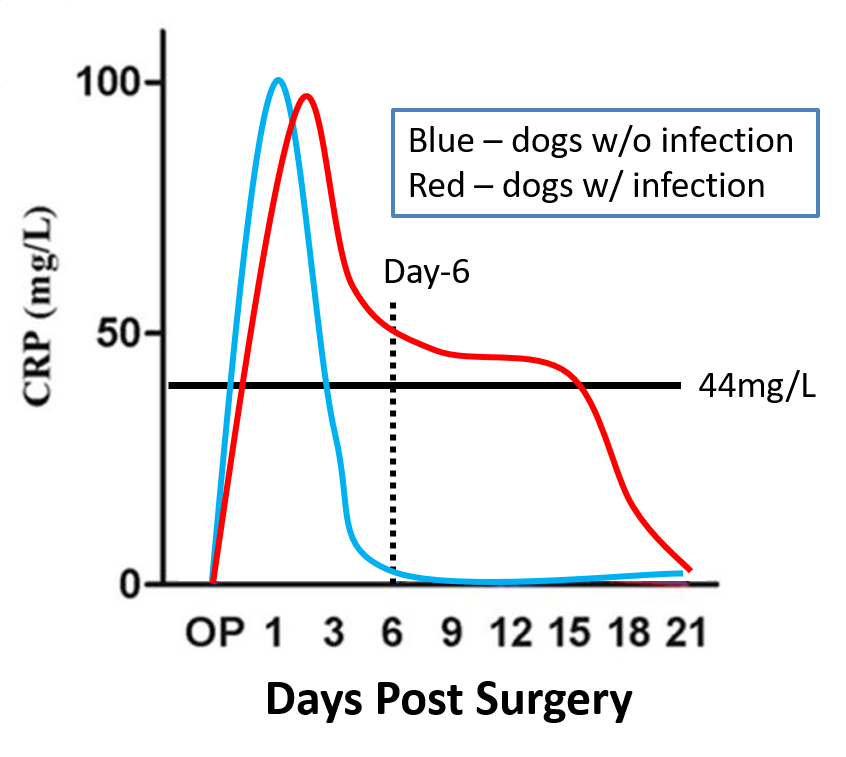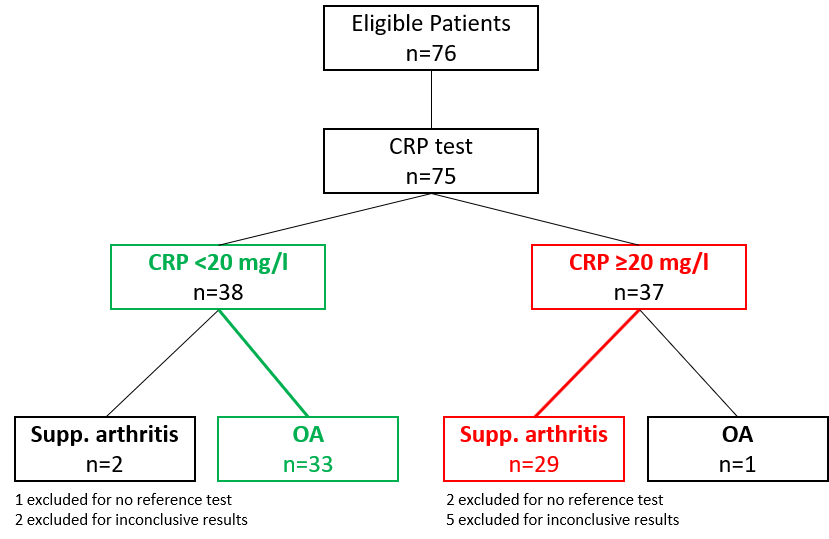
C-reactive protein (CRP), a general marker of the inflammatory response, correlates directly with both the severity and duration of the inflammatory stimulation. One of the strongest responses is to an infection.
Two recent publications demonstrate that CRP is useful to:
- Detect infections 6 days post-op
- Differentiate suppurative arthritis and osteoarthritis
Detecting Post-Op Infections
Reporting sensitivity/specificity of 0.95/0.99 respectively (ROC AUC 0.95) the use of CRP with a cutoff at 44mg/L at Day-6 post-op provided a fast and accurate method to detect infections (2). The study followed CRP concentrations and infections in dog undergoing cranial cruciate ligament rupture surgery.
While CRP levels will rise immediately after surgery to initiate repair, the inflammatory process quickly diminishes in patients without infection complications (blue line). At Day-6 post-op, CRP concentrations should be well below 40mg/L whereas in patients with infections maintain high levels of CRP until infection is resolved (red line).

Suppurative Arthritis and Osteoarthritis
Reporting sensitivity/specificity of 0.95/0.99 respectively (ROC AUC 0.99) the use of CRP with a cutoff at 20mg/L provided a fast and accurate method to differentiate suppurative arthritis from osteoarthritis (1). This was unaffected by the use of NSAIDS or glucocorticosteroids. In the suppurative arthritis cohort, 61% had either a left-shift or neutrophilia making common hematology metrics unreliable.

VDI Laboratory has a high-sensitivity canine CRP assay which may be useful in the management of patients suspected of having an infection.
References:
- Hillstrom A (2016) Measurement of serum C-reactive protein concentration for discriminating between suppurative arthritis and osteoarthritis in dogs. BMC Vet Res
- Lofqvist K (2018) Usefulness of C-reactive protein and serum amyloid A in early detection of postoperative infectious complications to tibial plateau leveling osteotomy in dogs. Acta Vet Scan
